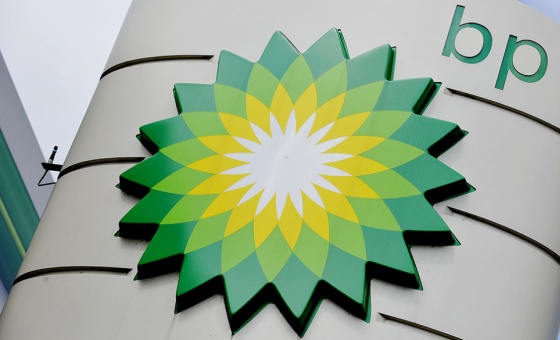This is the last article you can read this month
You can read more article this month
You can read more articles this month
Sorry your limit is up for this month
Reset on:
Please help support the Morning Star by subscribing here
IN THE wake of a calamitously handled pandemic peak and growing calls for PM Johnson to resign with his guru-turned-nemesis Dominic Cummings sowing the seeds for yet another Tory psychodrama, political parties are preparing for a set of local, mayoral and assembly elections that will serve inevitably as a media barometer for the popularity of their leaders, amid the prospect of a possibly soon dis-United Kingdom.
Optimism for the liberties offered by the long awaited and much debated vaccine programme will be tempered by a lockdown-weary electorate keen to regain some semblance of a social life, amid the second summer of a long economic recession described by the Bank of England as the deepest since 1706. With all of this in mind, Grace Blakeley offers her own forecasts for the future of the economic and political landscape.
“A recession means there is more unemployment, lower wages, and workers have less bargaining power. Firms are being allowed to fire people and rehire them on insecure contracts, and automation means there are likely to be fewer jobs created over the long run because of the kind of investment we’re seeing in labour-saving technologies.
“Then obviously it doesn’t add up to a great deal of power for organised labour. We’ve seen the power of workers relative to capital decline steadily for the last 40 years, which is reflected in lower levels of union density and also the declining share of national income.
“Between around 2009 and 2019 most workers didn’t actually have a pay rise, which is historically unprecedented. So this is going to be a big challenge going forward, and requires co-ordinated action from the labour movement to demand the kind of powers they are going to need to weather this crisis and whatever comes next.”
Unite the Union has recently launched a campaign to press government into legislating against the bully-boy tactics utilised by unscrupulous employers who seek to use fire-and-rehire contracts to undermine their workers. The governments of Ireland, Spain and France have already outlawed such practices.
As a general union, Unite encourages workers from all sectors to join them in this most important cause.
One irony of Johnson’s pyrrhic election victory is that the pandemic has forced his government to enact policies of mass spending –seemingly antithesis to Conservative economics – yet Blakeley reflects that if we look at where those funds tend to go, it is not so counterintuitive after all.
“I don’t think much of what we’ve seen since the pandemic has been contradictory to the interests of Conservatism. As we’ve entered into a crisis in which capital requires much more state support, it’s not surprising that Rishi Sunak and the Conservative Party ride to the aid of big business and finance with lots of loans. Support from the furlough scheme subsidising people’s wages prevents mass unemployment, but also allows people to keep workers on and not have to pay their wages.
“Over the longer term, what we might see is not a return to austerity – I don’t think that’s particularly likely, because most of what it would have been easiest to cut has already been cut, and there was already declining support for cuts when we came into this crisis.
“Johnson and Sunak are trying to give their party an image makeover, and their idea is to create authoritarian state capitalism where the state exists to support big business – dishing out money to supporters of the government, combined with authoritarian measures directed against those who might consider rebelling or resisting it.
“It’s about providing benefits to the Conservative electoral coalition to make this model sustainable, while actively repressing the discontent of the rest of the population.”
The Office for Budget Responsibility (OBR) had predicted that government borrowing will reach £355bn in 2020-2021, equivalent to 17 per cent of GDP – in May 2020 alone it borrowed more than for the entire financial year 2019-2020. Such figures are unprecedented for peacetime government, and we might presume that Sunak will be forced to raise uncomfortable levies on either his party’s backers or its wider voting public, but Blakeley expects that such rebalancing the books will not affect the financiers that keep the Conservatives in power.
“A government like this doesn’t have to raise taxes in order to finance its spending. If we do see the debt-to-GDP ratio increase over the long run, then potentially they might come under pressure from some of their backbenchers to start reducing the deficit, but more likely they will decide to make cuts to areas of the state that don’t benefit their electoral base.
“They have said they will raise corporation tax – but that’s a tiny proportion of our tax base, and it has loads of loopholes in it, apart from the capital allowances. It’s quite likely, therefore, that some of the biggest corporations won’t be paying more tax, in fact we’ll continue to see subsidies for big business until they’re no longer needed.”
So much for Sunak “doing socialism” – as some pundits erroneously put it. These interventions were a necessity any government would implement to prevent total collapse and civil unrest by making the barest concessions necessary in a crisis.
It is perhaps worth remembering that the coalition government during WWII led by the Conservative PM Winston Churchill utilised a “planned economy” with nationalised industries and many of those aspects were expanded by Clement Attlee’s Labour government that won the 1945 election by a landslide.
For the subsequent three decades in which Labour and Conservative governments alternated, the “post-war consensus” between both sides kept a semblance of a social democratic model of publicly owned utilities, until the Margaret Thatcher government began in 1975 the onslaught of asset stripping the nation that continues today.
However, Blakeley warns us that mere hands-on government should not be considered the benchmark of socialism: “State intervention doesn’t equal socialism. Plenty of socialists have made that point throughout history, not least Lenin, who warned us about confusing state intervention and state capitalism with socialism.”
In recent years – with the Labour Party under Corbyn’s leadership –conversations on worker participation and ownership came to the fore again.
In the wake of the 2019 election defeat, however, Keir Starmer, a prominent figure from pews on the right wing of the party’s “broad church,” launched his leadership bid with a series of pledges straight from the 2019 Labour manifesto – abolition of the deeply flawed universal credit system, tax increases for the wealthiest, nationalisation of key industries, a Green New Deal – policies that would have raised alarm bells of being “far left” had Starmer proposed them, say, during the Ed Miliband era.
So what lay behind Starmer’s commitment to such election pledges, has he had a damascene moment of revelation, a socialist epiphany on his road to power? Blakeley is sceptical: “I think they were a very clearly well calculated plan to win votes from the membership that wanted Corbynism without Corbyn.
“That isn’t what we’ve got – instead we’ve had a massive shift to the right, and it’s quite clear at the moment that Starmer’s campaign is being run in the interests of the right of the Labour Party, who are using it to shut down many of the reforms to internal party democracy, to consolidate their control, and purge the left from the party altogether – that’s the main animus behind Starmer’s leadership.
“That is not conducive to good poll ratings, it’s just focusing on winning internal battles, which is why he isn’t doing so well. I don’t think we’re going to see much in terms of policy, because that’s not his priority. The priority of the people behind him is to get the left out of the party rather than actually do anything to fix the issues the country is facing.
“Ultimately the biggest problem Labour faces is that working-class voters have been leaving it en masse for the last several decades. If the party is going to win an election, they need to encourage people to re-enter the electorate. The way to do that is to make them enthused about voting. Without knowing what Starmer is arguing for, without a clear message, narrative or plan as to how they’re going to improve the economy and people’s lives after Covid-19, that’s not going to happen.”
Aside from the old Bennite adage of there being no final victory and no final defeat, but the same battle to be fought over and over again, what can be done? Blakeley insists that one of the most effective vehicles for change is engagement in collective activity that can make incremental yet significant progress – the aforementioned Unite campaign against fire and rehire currently underway being just one example.
“The most important thing for the left now is to get involved in grassroots campaigns that are going to consolidate the growing power of the last five years. We need to make sure we are actually entering into institutions to consolidate those gains and making sure we are in those movements that are going to become much more important over the coming decade as the government tries to clamp down on any form of dissent.
“Also, staying in the Labour Party to resist the creeping turn to the right under Starmer, so that when he is pushed out, there will be a caucus of people able to campaign for a leader who is going to help develop progressive policies, with the desire and means to solve the climate crisis as well as all the other crises this country faces.”
To get involved in Unite the union’s campaign against fire and re-hire, please visit: https://www.unitetheunion.org/campaigns/end-fire-and-rehire/
Grace Blakeley is a staff writer for Tribune, contributor for Novara Media and has served on Labour’s National Policy Forum. Her latest title, The Corona Crash, is available from Verso books: https://www.versobooks.com/books/3723-the-corona-crash












